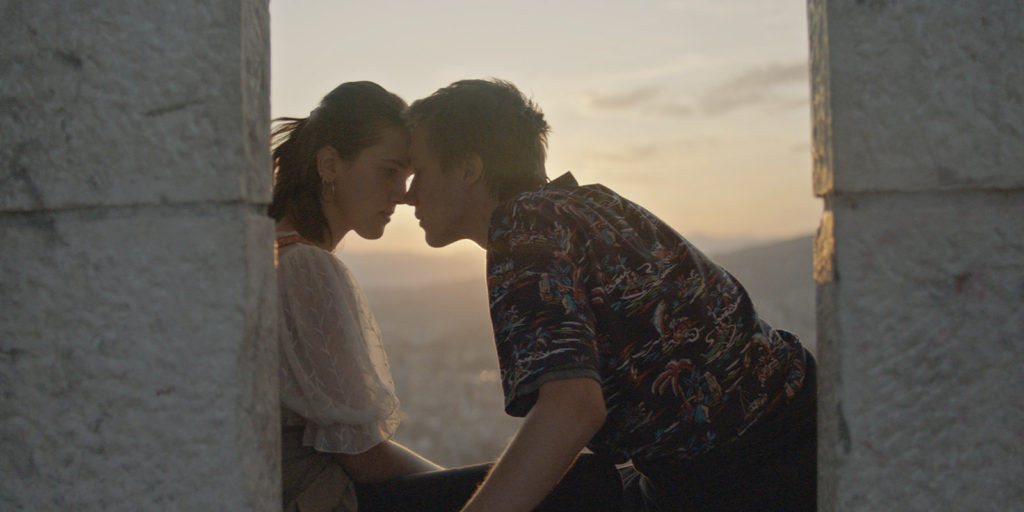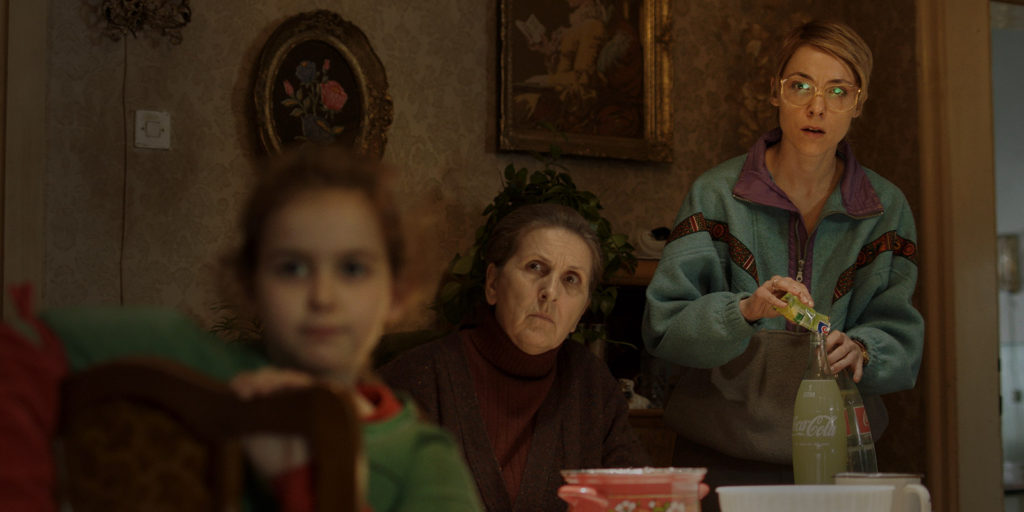Vancouver Foreign Film Society
The White Fortress
Nominee: Best Feature Film:
Berlin 2021 Grand Prix of the Generation 14 plus International Jury
Directed and written by Igor Drljaca, the film is shot in Sarajevo, the largest city in Bosnia and Herzegovina. Igor was born in Sarajevo, Yugoslavia and resides in Toronto Canada.
As with his previous documentary, he continues to focus on post war Bosnian political and social issues, and in this new drama concentrates on the lack of opportunities for the youth of Sarajevo
———————–
The film is part, coming of age story and also, part love story for 2 teenagers who come from very different backgrounds. Faruk is poor and lives with his elderly ailing grandmother in a low social housing complex. His mother was part of the Sarajevo symphony orchestra prior to the war. She died when Faruk was quite young. He never knew his father.
Mona comes from a wealthy family who are bureaucrats, living in a posh area. She attends a private school and has a chauffeur. Her parents are intent on her leaving Sarajevo to study in Toronto but not altogether for her benefit, as their relationship is strained.
Faruk does not attend school and helps an uncle part time finding and selling scrap metal. At the same time he helps his buddy Almir, trafficking girls for a criminal boss named Cedo. Faruk messes up transporting one of the girls in a cab to her wealthy client as he only rides a moped. Subsequently both he and Almir steal some scaffolding that belongs to the boss and sell it for scrap. The punishment, besides howling like dogs, is for Faruk to find and groom young girls for trafficking and Almir is to ensure that the task of Faruk is carried out.
In the meantime Faruk charms Mona in a shopping centre after the cab episode, and they begin a relationship, texting one another and frequently meeting. Mona is supposed to be one of these young girls being groomed for trafficking, but Faruk’s relationship with Mona is blossoming. At one point Faruk has to help Almir pick up one of the girls beaten up. Faruk is shocked and decides he wants no part of being involved with grooming and trafficking and wants out.
Not to provide any spoilers we wont go any further with the story, other than to say that the final scenes of the film are shot at Tabija, an old fort overlooking the historic core of Sarajevo.
———————-
The acting of both teenagers is superb and there are many symbolic scenes in the film that provide additional insight into Faruk’s character and the overall situation in post war Sarajevo. Filming is exceptional with some beautiful scenes of the city and surrounding area.
Everything Went Fine
Directed by François Ozon, this film is based on on Emmanuèle Bernheim’s book about helping her elderly father commit euthanasia. The film received 2 nominations at Cannes
I have grown to really enjoy François Ozon’s recent films from “By the Grace of God” (my top film at VIFF 2019) to “Summer of 85” in 2020 and this year’s “Everything Went Fine”
I find his films to be beautifully crafted, with strong character development, well paced and a tight balanced script. This film follows along those same lines. All the performances are strong and convey a realistic portrayal of a family that would suddenly be confronted with an elderly parent suffering a stroke.
André Dussollier’ performance as André Bernheim is outstanding. While you are supposed to sympathize with his character as that of a stroke patient with the typical paralysis that one sees, you see him as a loathsome and brash human being. An awful father to his younger daughter Emmanuèle (Sophie Marceau) as is evidenced from flashbacks.
Emmanuèle, a novelist, is now burdened with caring for her father as her other sister, Pascale (Géraldine Pailhas) has work commitments and a son to take care of. Initially Emmanuèle thinks he is strong, and will get better, but his condition worsens. André pressures Emmanuèle to assist him in committing suicide.
André, openly gay and wealthy, is a bully to both his family, friends and his long suffering wife Claude (Charlotte Rampling) who has Parkinsons and is depressed, having suffered for many years being married to her openly gay husband.
André has also been avoiding his former lover, Gerard, for some time before the stroke. Gerard is extremely violent and still wants to maintain their relationship. He has also been promised an extremely expensive wrist watch from André. He tries to visit André in the hospital but at first is prevented by Emmanuèle and the hospital staff. Eventually he succeeds and visits André in the hospital. He finds out about his assisted suicide intensions and leaves after receiving the watch.
Emmanuèle tries to resist her fathers determination to commit suicide but ultimately agrees to look into the possibility of this taking place in Switzerland, as France does not allow assisted suicide. There are many twists and turns that take place before the ultimate journey to Switzerland happens.
————————
The film has a strong cast and the scenes and the settings are so realistic. It is not an easy subject for many audiences. However, the film gets the audience totally involved into family dynamics, legal challenges in France for assisted suicide, and how only the wealthy can afford to do this.
Celts (Kelti)
Directed by Milica Tomovic this film won over 6 awards and was a nominee in 5 other festival including best feature film at Berlin 2021.
I really enjoyed this film. Refreshingly different and depicting a day in the life of a couple in Belgrade, who are throwing a party for their 8 year old in 1993.
This was the year when the Socialist Federal Republic of Yugoslavia was proposed.
——————–
The entire school class are invited to a theme party for 8 year old Minja who is a big fan of the superhero Raphael of Teenage Mutant Ninja Turtles. Many friends, including some parents and some relatives ,and siblings of the host couple. Minja also has a teenage punk sister Tamara and an introverted half brother Fica, more or less the same age and her grandmother who lives with the family.
Minja’s parents are not getting on, as her mother Marijana is frustrated with her depleted sex life with that of her husband Otac This is evidenced in the first opening scene.
There is such an assortment of characters and personalities in the film such as Marijana’ s gay sister and brother, both very progressive, Octac’s, punk brother who is a so-called activist and to whom teenage Tamara can relate to.
Some of the friends have ex’s at the party and past relationships are all over the map. Everyone is sick of the politics and situations of the country and their future which is bleak. As a result everyone is drinking heavily and arguing not only about politics but about one another’s present status, relationships and jealousies.
The birthday kids are too young to understand the political situation and are left alone with very little supervision in this large house. There are some extremely funny scenes especially with Fica, the introverted half brother that affects the party. All of these scenes and situations just add the enjoyment of the film.
——————-


